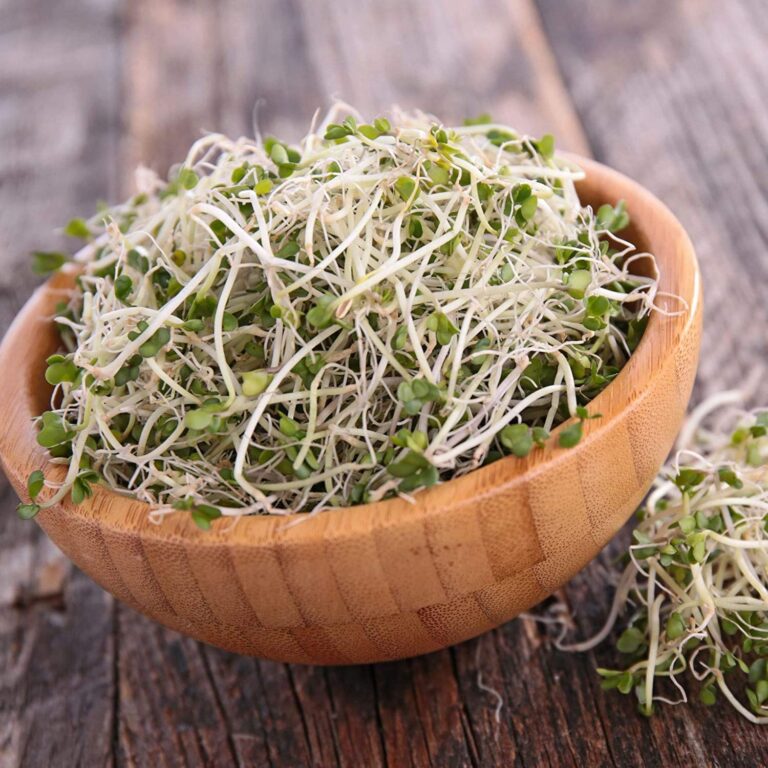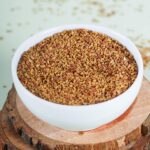Unlocking the Potential of Broccoli Seeds: Health Benefits, Growing Tips, and More
Broccoli seeds are relatively easy to germinate and grow. They can be started indoors or outdoors, depending on your climate. If you are starting seeds indoors, it is best to do so 6-8 weeks before the last frost date in your area. If you are starting seeds outdoors, it is best to wait until the soil temperature has warmed to at least 50 degrees Fahrenheit.
To germinate broccoli seeds, sow them 1/4 inch deep in moist soil. Keep the soil moist but not soggy. Broccoli seeds typically germinate within 7-10 days. Once the seedlings have emerged, thin them so that they are 12-18 inches apart.
Broccoli plants need full sun and well-drained soil. They are relatively drought-tolerant, but they will produce larger heads if they are watered regularly. Broccoli plants also benefit from a balanced fertilizer application.
Broccoli heads are typically ready to harvest 60-80 days after transplanting the seedlings outdoors. To harvest a broccoli head, simply cut it off at the base of the plant. Be sure to leave some of the smaller florets on the plant so that it will continue to produce new heads.
If you are saving broccoli seeds for next year, allow the broccoli heads to mature fully until the flowers turn brown and dry out. Then, collect the seeds from the flower heads and store them in a cool, dry place.
Broccoli seeds for sprouting have gained popularity in recent years, thanks to their numerous health benefits and versatility in culinary creations. These tiny seeds pack a powerful punch when it comes to nutrition, making them a must-add to your kitchen repertoire. In this blog post, we’ll explore the incredible world of broccoli sprouts, their nutritional value, how to grow them, and creative ways to incorporate them into your diet.
The Nutritional Value of Broccoli Sprouts
Rich in Sulforaphane:
Broccoli sprouts are exceptionally rich in sulforaphane, a potent antioxidant that has been linked to various health benefits. Studies suggest that sulforaphane may help reduce inflammation, support detoxification, and even protect against certain types of cancer.
Abundant in Vitamins and Minerals:
These sprouts are a great source of essential vitamins and minerals, including vitamin C, vitamin K, folate, and potassium. Vitamin C boosts the immune system, while vitamin K is vital for bone health.
Low in Calories, High in Fiber:
If you’re watching your calorie intake, broccoli sprouts are an excellent choice. They are low in calories but high in fiber, promoting feelings of fullness and aiding in digestion.
Antioxidant Powerhouse:
Broccoli sprouts are packed with antioxidants, which help combat oxidative stress in the body. These antioxidants can potentially reduce the risk of chronic diseases and promote overall health.
How to Grow Broccoli Sprouts
Growing broccoli sprouts at home is a simple and cost-effective way to enjoy their nutritional benefits. Here’s a step-by-step guide:
Materials Needed:
- Broccoli seeds
- Mason jar or sprouting tray
- Cheesecloth or a fine-mesh strainer
- Water
Steps:
Soak the Seeds:
Start by soaking 2 tablespoons of broccoli seeds in water for 8-12 hours. Drain and rinse them thoroughly.
Rinse and Drain:
Transfer the soaked seeds to your chosen container, such as a mason jar with a mesh lid or a sprouting tray. Rinse and drain the seeds twice a day, making sure they remain moist but not waterlogged.
Sprout:
In about 3-7 days, depending on the temperature and humidity, your broccoli sprouts will be ready to harvest. They should be about 1-2 inches long and have a mild, fresh flavor.
Harvest and Store:
Once the sprouts are ready, give them a final rinse and drain. Preserve them in a sealed container within the fridge, ensuring freshness for a duration of one week.
Creative Ways to Use Broccoli Sprouts
Now that you have your freshly sprouted broccoli, it’s time to get creative in the kitchen. Here are some delicious ideas:
Salads:
Add a nutritious crunch to your salads by tossing in a handful of broccoli sprouts.
Sandwiches and Wraps:
Layer them in sandwiches, wraps, or burritos for added texture and flavor.
Smoothies:
Blend broccoli sprouts into your morning smoothie for an extra nutritional boost.
Stir-Fries:
Throw them into stir-fries during the last few minutes of cooking for a burst of color and nutrients.
Eggs:
Top your scrambled eggs or omelets with broccoli sprouts for a fresh twist.
Conclusion
Broccoli seeds for sprouting are a nutritional powerhouse that can easily be incorporated into your daily diet. Whether you’re looking to boost your antioxidant intake, add more vitamins and minerals to your meals, or simply enjoy their unique flavor and crunch, broccoli sprouts are a versatile and healthy choice. Try growing them at home, and let your culinary creativity flourish with this tiny, nutrient-packed superfood. Your body will thank you for it!





